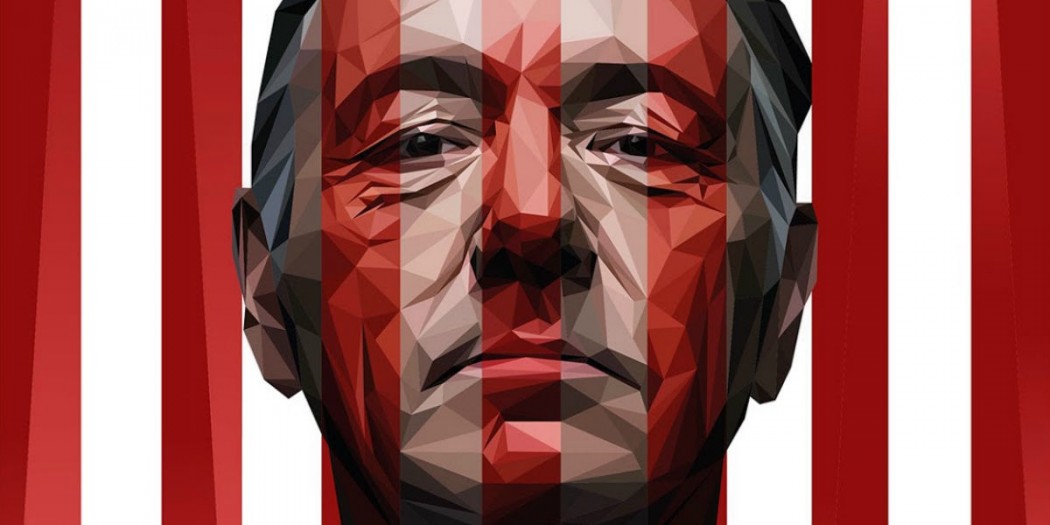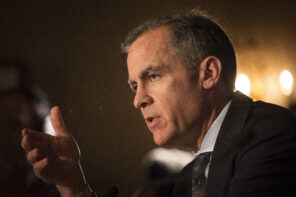By Max Segal
Addiction all look the same: the dirty spoon, the bloodshot eyes, the emptiness after the binge. Hi, my name is Max Segal and I am a Netflix addict. The kingpin program of my addiction is House of Cards, and as a vetted fan, I stayed up till 3 AM on March 4th and got the scoop on some Ben and Jerry’s and the fourth season of House of Cards early – so you do not have to. Though you really, really should. WARNING: MAJOR SPOILERS AHEAD!
A question pestering me about the House of Cards franchise concerns the name. Why is it called House of Cards if Frank moved on from the House of Representatives? The President gives commands; he does not need to buy people’s votes like a Congressperson anymore. This season largely examined the individual characters themselves rather than inter-character relationships (with the exception of the Underwoods’ marriage), with a particular focus on Frank. It became evident well on into the season that the eponymous ‘house of cards’ is no longer Congress per say, but the intricate chain of advisement and support Frank built on his path to the Oval Office. Frank’s challenger for the Democratic nomination, Heather Dunbar, at one point presciently remarks, “The president is not just himself, the president is everyone who works for him.” A house of cards is intrinsically unstable. This season threw up a tempest to Frank’s to see if it could weather the storm.
Many fans have long been perplexed as to what is the chemical agent that binds Frank and Claire; is it love? Loyalty? Mutual success?
Followers of the franchise have heard that this season picks up the slack left over from the last season – the rumours could not be truer. If Season Four is the hurricane, Season Three was the calm before. This season’s greatest achievement is reassuring true fans that the Underwoods are not the complacent couple we saw last season. They are again under siege, and that is how we like to see them. Season Four recalls all the people Frank wrote off as “finished” – Lucas Goodwin (in jail), Hammerschmidt (disillusioned), Claire (enraged) – and reassembles them all as factors that disturb Frank’s expectedly smooth road to an electoral victory.
Lucas Goodwin’s release under witness protection frees his vengeful hand to attempt to murder Frank. The White House following the attempt is headed by an indecisive Blythe, who foils how efficient and impactful Frank was. This circumstance brings out the Claire Underwood fans have come to adore, a harkening back to an earlier Claire from Seasons One and Two. She deftly guides Blythe through a forest of diplomacy and manipulation, underscoring how incapable he is as an executive. This pulls Claire back, to the cheers of under-slept fans (me), as she chooses ultimately not to leave her husband.
Fans who were put off of last season (I would give it a C+) with what seemed to be an impending divorce will be glad to know that this season explores the crashing waves of marriage. Whereas last season we see a dying union between Claire and Frank, Season Four shows us a nuclear holocaust for their union. Claire turns on Frank; Frank turns on Claire – having fallen out of their places last season, Frank and Claire resort this season to their natural reflex: fight. The marriage goes up in flames. It seems that there may not have been such a solid marriage there in the first place. In an exquisitely arranged scene, Claire is asked what people she cares for in her life. “I was devastated by my daddy’s death,” she confides. “Now that Francis and my mother are close to dying, I feel nothing.” Yes you inferred correctly, Frank does almost die.
While Doug is still the loyal Jack of all trades, his questionable actions this season mirror him through romance, dedication and paranoia.
The beautiful outcome of that catastrophe, paired with Claire’s successful stint as acting President, is that Frank admits he cannot function without Claire. These survivors decide to rebuild, though they are not sure what. Many fans have long been perplexed as to what is the chemical agent that binds Frank and Claire; is it love? Loyalty? Mutual success? Truth is, they do not know themselves. The only visible binding agent is their mutual respect, something not easily won by people from either individually. They understand that their only path forward is together and in a revealing moment, Claire explains,”we’ve gone beyond marriage… they see us and they see what they want to become.”
What fans may find most unnerving in this season is an ever-growing threat to the Underwoods. Alluded to in my mention of Lucas’s reappearance, Season Four reintroduces journalistic integrity as the ultimate peril facing Frank and Claire. Goodwin’s unchaining and consequent death awakens a sense of duty in his former boss, Tom Hammerschmidt, who gathers enough first-hand testimony to make Frank quiver. Frank, betrayed by those he betrayed, is put up against a wall. Catching on to the threat of Hammerschmidt, Frank admits to Claire, “I’m worried.” Claire grimly responds, “I’m numb.” The Underwoods may have realized they belong together, but are they strong enough to withstand the folding of the cards below?
A personal beef of mine with the past seasons is how poorly handled Doug’s story arc was. As a close trustee of Frank, his fibers are tested throughout this season. Fully recovered and aching to fill the emptiness, Doug is torn between repairing his own life and being available to Frank at all hours. While Doug is still the loyal Jack of all trades, his questionable actions this season mirror him through romance, dedication and paranoia. His life forces him to pick between himself and those he cares for, or the man he was reborn to tend to: Frank Underwood. Fans appreciate Doug for his unwavering submission, but we have never seen Doug confronted by his own desires. This season satisfies that three-season-long hunger.
Fans doubted the true return of House of Cards. We thought we saw the beginning of an unenthused deterioration of the story at the close of Season Three. What we had not known was that Season Three was an incubator for this season’s grueling battles (within characters themselves and between one another) to assert their permanence as mainstays in Washington. Claire and Frank regenerated, the Underwood Administration grows. But those forging alliances against them match its growth and corner the Underwoods. Whereas this season was about winning a war of political attrition and counting battle scars, the next, it seems, promises this season’s scars will not be their last.
A-








